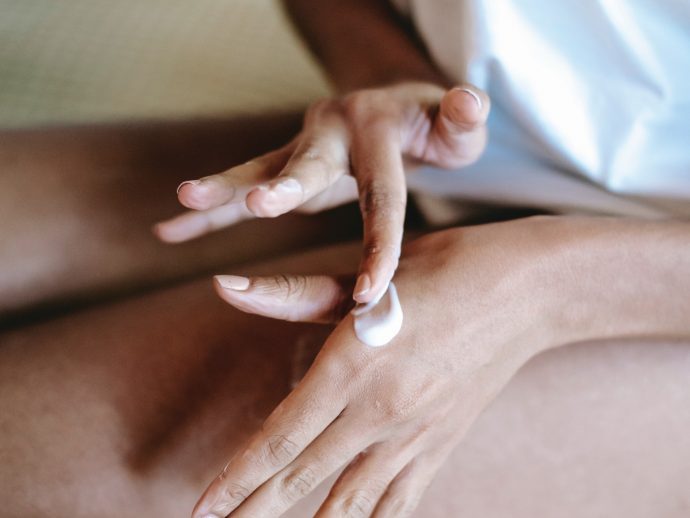
Stress and hormone imbalance can wreak havoc on the skin, leaving acne, eczema, and wrinkles in their wake. Learn how to mitigate stress and strike a balance in your hormones to cultivate a happier reflection in the mirror.
Skindications of overall health
Like a multitasking parent, the skin juggles protecting the body from environmental stressors such as UV light; producing neurotransmitters and hormones; synthesizing vitamin D; and regulating electrolytes, fluids, and body temperature.
The skin also moonlights as a crystal ball to reflect how the body is doing internally. Your skin may be dry, itchy, flushed, yellowish, pimply, or wrinkled because of inadequate nutrition or underlying dysfunctions in your hormonal, digestive, and immune systems. And these body systems are heavily influenced by stress.
Keep it simple
Waking up and going to bed at the same time every day (regardless of whether it’s the weekend!) is key for regulating hormones, since they’re affected by the circadian rhythm. The same thing goes for mealtimes; if you keep them as consistent as possible, your stress levels and hormones will be happy.
Pair movement with stress relief for a double whammy of health benefits. Whether that’s dancing, kickboxing, or walking, choose your bliss and do it often! Exercise encourages blood flow and lymphatic drainage, both of which help tonify and detoxify the skin.
Inside-out skin care routine
Internal |
External |
| Enjoy foods rich in the following nutrients, or supplement with:
omega-3s (fish, walnuts, chia) vitamin D (egg yolks, fish, mushrooms) vitamin C (bell peppers, citrus fruits, broccoli) vitamin E (wheat germ oil, sunflower seeds) vitamin A (leafy greens, sweet potato, carrots) zinc (poultry, legumes, nuts and seeds) collagen (bone broth)
Drink good quality water to hydrate your tissues and skin. |
Incorporate these topical skin care products and apply them to the face in this order:
Wash face with gentle cleanser. Apply toner. Nourish with a serum such as hyaluronic acid for dry and aging skin, and vitamins C and E to protect against skin damage. Apply a small amount of moisturizer. Finish with two fingertips’ worth of sunscreen with SPF 30 or higher (and reapply according to instructions). |
Need extra help?
Look under the surface with blood work and other diagnostic testing to identify the contributing causes of your skin health woes. Keeping tabs on your thyroid hormones, vitamin D status, estrogen, and cortisol values in the blood can be helpful indicators of how your skin’s doing on a microscopic level.
Written by Cassie Irwin, ND






